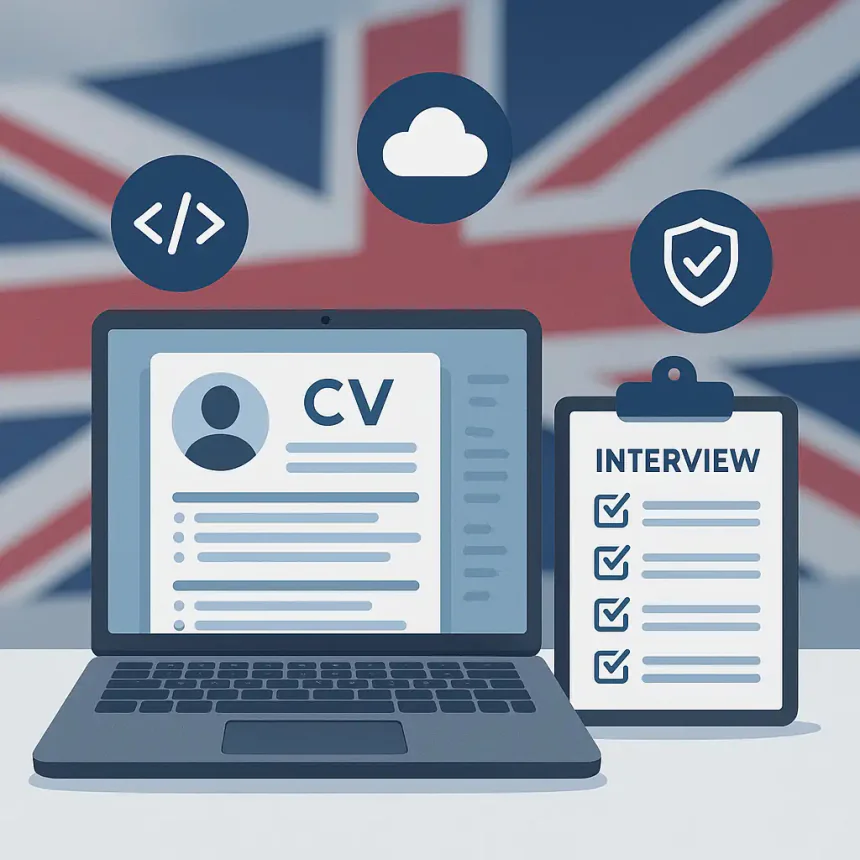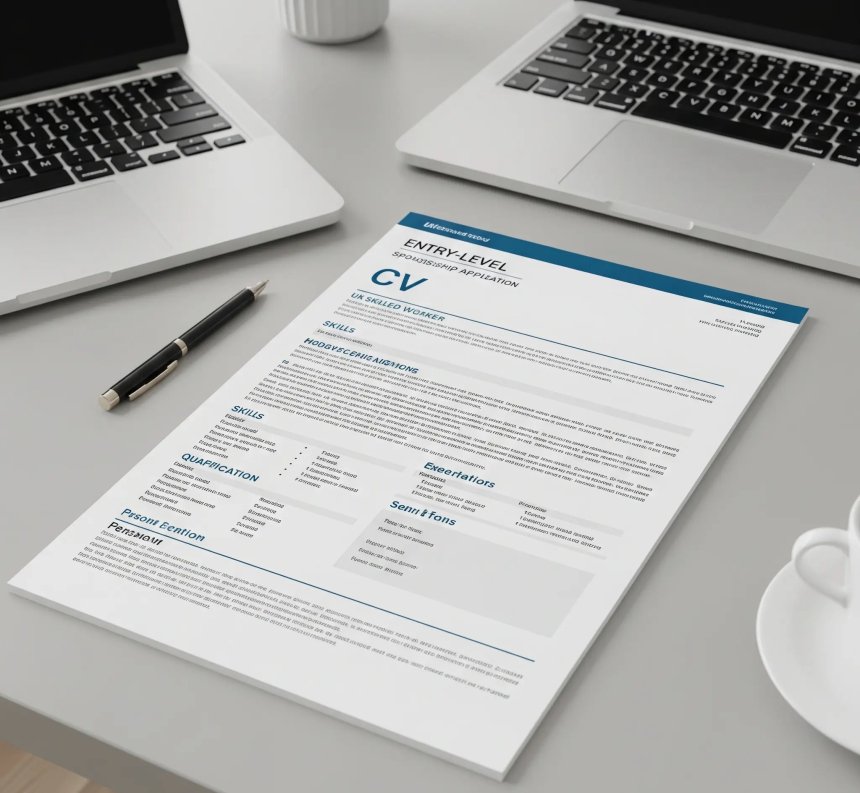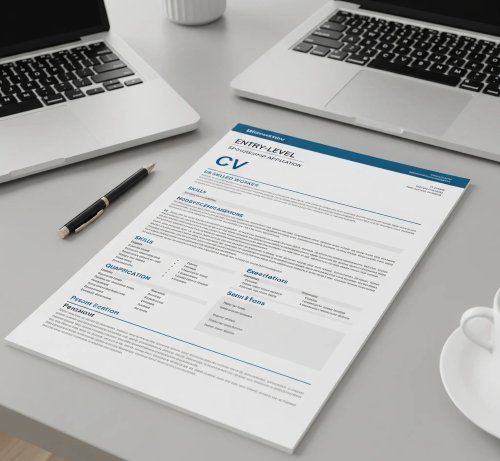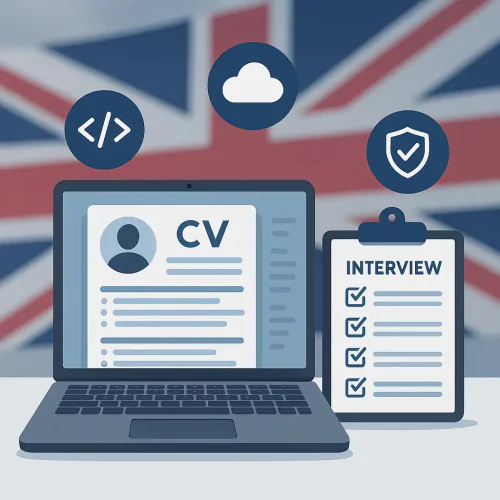Looking for a UK Job with Visa Sponsorship? Here’s What’s Hiring in 2025
Discover the top industries and in-demand roles offering visa sponsorship in the UK for 2025. Get insights into the latest hiring trends and opportunities for international job seekers.

The UK tech sector remains one of Europe’s largest and fastest-growing industries. As of 2023 it was valued at about $1.1 trillion with 171 unicorns, underlining its strength. Tech employment in the UK reached roughly 2.13 million in 2023 , a 3.4% increase over 2022 – and roles in computing pay well (the median tech salary is £44.9k, 50% above the overall UK median). In short, demand for skilled IT professionals remains strong, even as employers face a persistent digital skills shortage. This means that international graduates and IT specialists with the right skills can still find good opportunities, provided they meet the relevant visa rules.
The Skilled Worker Visa and Sponsorship Requirements
The main route for work in the UK is the Skilled Worker visa (formerly Tier 2). You must have a job offer from a UK employer approved as a Home Office sponsor. The job must meet a minimum skill level (RQF 3 or above – roughly A-level standard) and satisfy salary thresholds. From April 2025, the general salary floor is £25,000 per year (up from £23,200). Certain roles including those on the Immigration Salary List or filled by new entrants or STEM PhD holders – may qualify at a reduced rate (about 70–80% of the going rate). For example, positions requiring a STEM PhD can be eligible at the £25,000 base rate. At the same time, new entrants (such as recent graduates) may pay a lower minimum (roughly £30,960 or 70% of the occupation’s going rate).
Your sponsoring employer must issue a Certificate of Sponsorship (CoS), confirming your role meets these criteria. It’s crucial to check that the job title is on the official list of eligible occupations; fortunately, most IT roles are included. For example, the Skilled Worker list explicitly covers jobs like “IT network professionals”, “information technology professionals” (DevOps engineers, webmasters, etc.), “IT quality and testing professionals”, and many others. In practice, this means roles from software developers to cybersecurity specialists qualify for sponsorship. (If you’re unsure, the UK government’s sponsor register lists every licensed employer.)
Key points for visa applicants:
- Eligible occupations: The Skilled Worker list includes numerous tech jobs (developers, IT managers, security analysts, etc.).
- Skill and salary: Your job must require RQF 3+ skills and pay at or above the UK salary threshold (generally £25k from 2025).
- Sponsor license: You need a firm with a valid sponsor licence. Only employers on the official Tier 2 Sponsor List can hire visa workers.
- English and documents: You must prove English ability (typically CEFR B1 level) and meet other visa conditions (maintenance funds, etc.).
Despite recent tightening, switching from a UK study visa to Skilled Worker is still possible: about 42% of grads with expired Graduate Visas managed the transition in 2023. Importantly, time spent on a Skilled Worker visa counts toward settlement, so it’s a path to longer-term plans.
Recent Visa Rule Changes (2024–2025)
In 2024–25 the UK overhauled its skilled-worker policies. Notably, the old Shortage Occupation List was replaced by a new Immigration Salary List in April 2024. This change raised the minimum pay for most sponsored roles from 80% of the market rate to roughly the median (50th percentile) market pay. In effect, even “shortage” tech jobs generally now need full market salaries. The government made this change to limit net migration and ensure foreign workers aren’t underpaid. As a result, many companies must pay higher salaries to satisfy visa conditions.
Additionally, from June 2025 the Skilled Worker salary floor will rise (minimum £25k or £12.82/hour) and stricter checks will apply. For example, care employers now must show they tried hiring locally first. For IT workers in particular, these changes mostly mean higher salary offers and ensuring roles meet updated regulations. In short, planning ahead is vital: know the new thresholds and find sponsors who understand them.
UK Tech Job Market: Trends and Outlook
The overall UK tech job market is robust. Even after 2023’s tech layoffs, 2024–25 looks healthier. Tech adoption (especially AI and cloud) is driving new hiring. For instance, 89% of large UK firms now use cloud services, underscoring demand for cloud engineers. Investment is also heavy: UK tech startups raised $21.3 billion in 2023, mostly in London. AI is a particular focus (over 1,800 UK VC-backed AI startups, 20 AI unicorns).
However, skills remain in short supply. A recent survey found 68% of UK firms struggle to hire the digital talent they need, and 45% cite a shortage of qualified applicants. Government data shows ICT roles have an exceptionally high vacancy rate (43% of jobs couldn’t be filled in 2022 due to skills gaps). This means competition among employers to attract tech workers is high, good news for candidates with in-demand skills.
For context, consider this: the median UK tech salary is about £45k, and employers are increasingly willing to pay premiums for scarce skills. The Robert Half 2024 Salary Guide notes that 46% of UK businesses are boosting pay to attract top talent. So as an international candidate, bringing tech expertise can put you in a strong negotiating position.
In-Demand IT Roles for 2025
The growing IT roles in the UK reflect the digital trends above. Industry analyses consistently highlight the following:
- AI/Machine Learning Engineer: With UK’s AI investment surging, engineers who build intelligent algorithms are in hot demand. Starting salaries are typically around £45k, with experienced ML engineers commanding well over £100k (London median ~£87.5k).
- Data Scientist / Data Analyst: Businesses across finance, healthcare, retail and more need data pros to turn data into insights. Entry data analysts earn ~£30–60k, while data scientists (with advanced skills) earn ~£45–85k.
- Cybersecurity Specialist: Cyberattacks are increasingly common, so security analysts and architects are crucial. UK cybersecurity analysts earn on average ~£45k (with entry ~£35k, senior up to ~£62.5k). The government’s £2.6 billion National Cyber Strategy also fuels demand for security experts.
- Cloud Engineer / Architect: Nearly all major companies use cloud services, so experts in AWS, Azure or GCP are needed. Cloud engineer salaries in the UK range broadly (e.g. £38k–£144k), reflecting demand for skilled professionals who can design and manage cloud infrastructure.
- DevOps Engineer: DevOps roles (bridging development and operations) continue to grow. Over 70% of firms have adopted DevOps practices. UK DevOps engineers typically earn £50k–£85k depending on experience.
- Full-Stack Software Developer: Versatile programmers who handle both front-end and backend work remain indispensable. Even LinkedIn and Robert Half list “full-stack developer” among the top UK tech jobs. Full-stack devs earn roughly £40k–£80k.
Other roles often cited include UX/UI designers and product managers (needed for delivering digital products), but sponsorship tends to focus on core IT roles above. In summary, strong growth is seen especially in AI/ML, cloud, security, data and full-stack development.
For a quick summary, this table shows example top roles, typical UK salary ranges, and some example sponsoring employers:
|
Job Title |
Salary Range (GBP) |
Example Visa-Sponsoring Employers |
|
AI / ML Engineer |
£45,000 – £120,000 |
Google, Microsoft, Amazon, DeepMind |
|
Data Scientist / Analyst |
£30,000 – £85,000 |
Amazon, Meta (Facebook), NHS Digital, GSK |
|
Cybersecurity Analyst |
£35,000 – £62,500 |
BAE Systems, Deloitte, BT, Accenture |
|
Cloud Engineer |
£38,000 – £144,000 |
Amazon Web Services, Microsoft Azure, IBM |
|
DevOps Engineer |
£50,000 – £85,000 |
IBM, Salesforce, Cisco, ThoughtWorks |
|
Full-Stack Developer |
£40,000 – £80,000 |
Google, Meta (Facebook), ThoughtWorks, Infosys |
Note: Ranges vary by experience and location (higher in London). Above values are approximate averages from industry data.
Many major tech companies and consultancies in the UK hold sponsor licences for these roles. For example, big firms like Capgemini, Accenture, IBM, AWS/Google/Meta, as well as financial institutions and NHS Digital, actively recruit international IT talent. The Home Office Tier 2 Sponsor List is publicly accessible and includes all such licensed employers.
|
Company Name |
Sector |
Example Sponsored Roles |
Headquarters |
|
Accenture |
Consulting |
Software Engineer, Cybersecurity Analyst, DevOps |
London, UK |
|
Amazon (AWS) |
Cloud Computing |
Cloud Engineer, Data Analyst, Solutions Architect |
London, UK |
|
Capgemini |
IT Services |
Data Scientist, AI Engineer, QA Analyst |
London, UK |
|
Google |
Technology |
ML Engineer, Full Stack Developer, UX Designer |
London, UK |
|
Meta (Facebook) |
Technology |
Software Engineer, Product Manager, Data Scientist |
London, UK |
|
Microsoft |
Technology |
Azure Cloud Specialist, Security Engineer |
Reading, UK |
|
ThoughtWorks |
Software Dev |
Full Stack Developer, Agile Coach, DevOps Engineer |
Manchester, UK |
|
IBM |
IT & Consulting |
Cloud Architect, DevOps Lead, Data Engineer |
London, UK |
|
BT Group |
Telecom/Tech |
Network Security Specialist, IT Support Analyst |
London, UK |
|
NHS Digital |
Health IT |
IT Infrastructure Analyst, Data Analyst |
Leeds, UK |
Source: UK Home Office Tier 2 Sponsor List (2025), company career sites
table 1 – Licensed UK employers across the tech sector (e.g. consultancies, banks and tech firms) sponsoring visas for skilled workers.
Skills and Qualifications Sought
To land these jobs, you’ll need both relevant skills and qualifications. In-demand technical skills include:
- AI/ML and Data Skills: Machine learning (Python, TensorFlow, PyTorch) and data-handling (SQL, R, big data tools). UK businesses emphasize AI and data analysis; recent reports note rising hiring for AI engineers and data roles.
- Cloud Computing: Expertise with cloud platforms (AWS, Azure, Google Cloud) and related skills (Kubernetes, Docker).
- Cybersecurity: Knowledge of network/security fundamentals (firewalls, encryption), risk management and certifications (CISSP, CISM, CEH).
- Software Development: Proficiency in languages like JavaScript, Java, Python or C#, as well as web frameworks and tools. Also knowledge of DevOps/automation tools (Jenkins, CI/CD pipelines).
- UX/UI and Design: (For roles like front-end dev or product design) skills in user-centred design, prototyping and front-end tech (HTML/CSS, design software). The tech talent shortage has kept even UX designers in demand.
On the qualifications side, most sponsoring employers expect a technical degree (Bachelors or higher) in computer science, engineering or similar. The visa itself requires roles to be RQF3+; in practice, a Bachelor’s degree (RQF6) or above is common. PhD holders often have an advantage: UK rules allow “new entrant” PhDs to satisfy the rules at a 70% salary rate. Also note that you must prove English proficiency (typically CEFR B1) and meet other eligibility criteria for the visa.
Tips to Land a Sponsored IT Job
· Target licensed employers: Search the UK’s sponsor licence register and focus on companies listed there. Many tech, finance and consulting firms maintain these licences.
· Focus on employable skills: Don't focus on your knowledge of AI, cloud, cybersecurity, etc. You can add technical certification (e.g. AWS Certified, Cisco CCNA, Microsoft Azure) to your case.
· Networking and recruitment: Visit UK tech conferences, go to LinkedIn, and look at the job sites and find a job with notes of visa sponsorship. There are also UK-based recruiters of global tech talent.
· Expect to see more increases in salaries: The employers will likely have to increase their salaries to meet the market median. A tough salary negotiation has become critical and so you must be aware of the salary ranges that can be seen above.
The UK government uses tech immigration even though there are stricter rules in place with the aim of meeting the skill gaps. For example, there is a points-based system that awards additional points for STEM PhDs and shortage jobs, and the time spent on a Skilled Worker visa is counted towards settlement. All in all, a high growth of AI/data combined with a persistent shortage of tech workers suggests that 2025 will be a good year for prospective workers who have shown an interest.
In summary
IT experts who have data, cloud or security talents on a global scale are in a good position to secure sponsored employment in the UK. In-demand occupations include software developers (particularly full-stack), data scientists and data analysts, AI/ML engineers, cloud and DevOps engineers, and cybersecurity specialists. With these top-demand fields and focusing on the sanctioned sponsors, you will be able to successfully take a path to the visa system and become one of the prosperous UK tech employees
Share
What's Your Reaction?
 Like
0
Like
0
 Dislike
0
Dislike
0
 Love
0
Love
0
 Funny
0
Funny
0
 Angry
0
Angry
0
 Sad
0
Sad
0
 Wow
0
Wow
0












